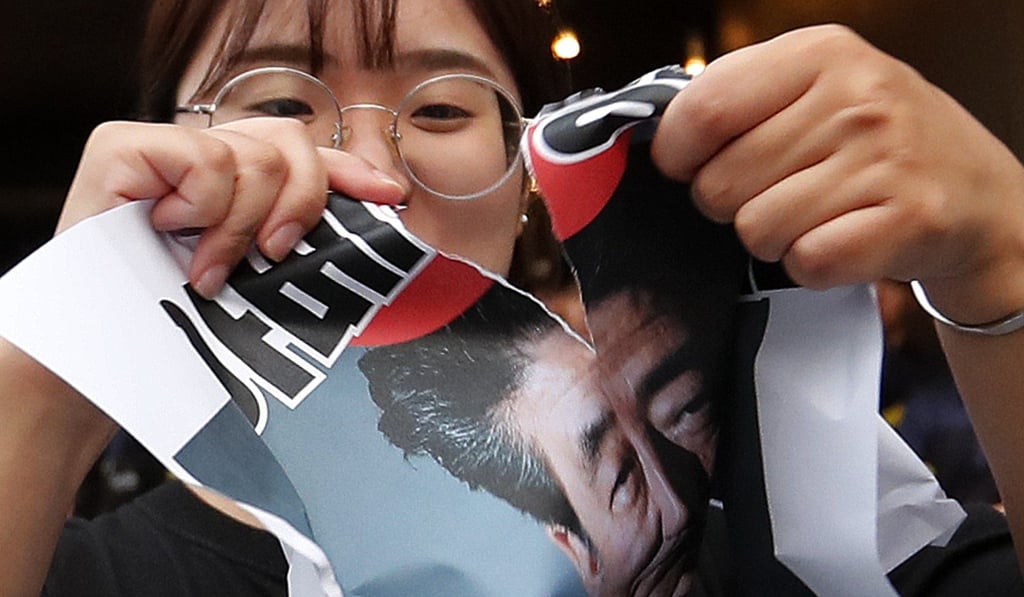Advertisement
South Koreans want to avoid Muji, Daiso and Nintendo, but brand confusion could undermine any boycott of Japanese goods
- A simmering dispute over export curbs and compensation for wartime forced labour has many in South Korea swearing off products of Japanese origin
- But in such an interconnected, globalised world, pinning down exactly where something comes from can be easier said than done
Reading Time:5 minutes
Why you can trust SCMP

South Korean social media has been awash with calls for a boycott of Japanese goods ever since Tokyo announced a curb on exports of hi-tech materials to its East Asian neighbour earlier this month.
On Thursday, “boycott” remained the top tending keyword on Twitter in South Korea, with hashtags like #BoycottJapan calling on the nation’s consumers to stop buying Japanese-made products and engaging with Japanese brands.
A survey of 501 people carried out by Korean research firm Realmeter on July 11 found that seven out of 10 respondents said they would join a boycott of Japanese goods.
Advertisement
But in an era of globalised businesses and transnational brands, determining where a product originates or a company’s national identity is easier said than done – leading to confusion over what, exactly, consumers should be boycotting.

Advertisement
Some of the brands highlighted by Korean social media users include Muji, Daiso, ABC Mart, Uniqlo, Asics, 7-Eleven, Sony and Nintendo.
A common refrain, as expressed by 21-year-old university student Kim Dae-young, is “if it sounds Japanese, it’s probably Japanese”. Yet the truth of the matter is not so simple.
Advertisement
Select Voice
Choose your listening speed
Get through articles 2x faster
1.25x
250 WPM
Slow
Average
Fast
1.25x